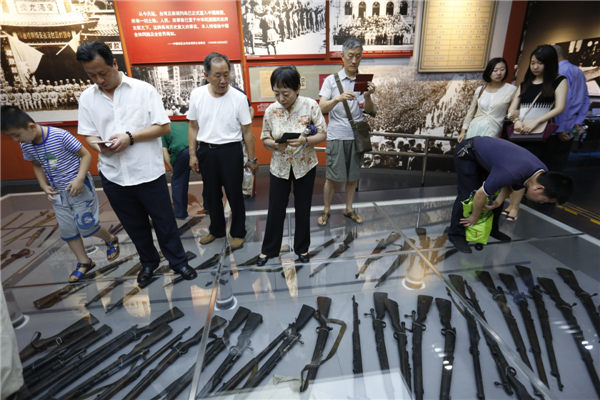 |
|
A juxtaposition of seized Japanese guns seen through transparent panels under visitors' feet. |
Eight sections highlight the united struggle against the invasion initiated by the Communist Party of China and supported by different social strata in the country and overseas Chinese communities. The timeline starts with regional warfare in Northeast China dating back to 1931, to the ultimate victory in 1945.
"For a long time, the West has generally considered World War II to have begun in 1939 in Poland," says Li Zongyuan, deputy curator of the museum. "We expect the exhibition to tell the world that it actually began in this land two years earlier, which has been gradually recognized by academia overseas."
One of the new displays is a juxtaposition of seized Japanese guns in a transparent showcase under visitors' feet, a way for people to step down on the vicious machines of war-for good.
Li says the details of many touching individual stories in the displays resonate among visitors. For example, farewell letters left by Chinese soldiers to their families before setting off for battlefields are shown to the public.
Also highlighted: the international cooperation to fight against the Axis during WWII. For example, the Kuomintang-led Chinese Expeditionary Forces to Burma (today's Myanmar) and the efforts of a Chinese diplomat, He Fengshan, in Vienna, to save Jewish people from Hitler's gas chambers.
Tools used by people in Sichuan province to construct an airport were also collected by the museum to put on show. Stone rollers, for example, were used to pave the runaways.